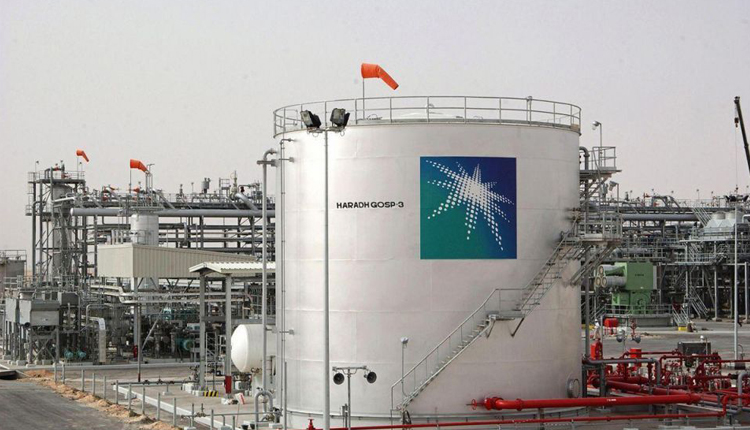Saudi Aramco plans to sell up to 0.5 percent of its shares to individual investors in what could be described as the largest initial public offering in history.
The world’s biggest oil company released a prospectus on Saturday, providing further information but without revealing the exact size of its planned share offering.
Saudi Aramco said the process begins November 17 and closes December 4. A final offer price, as well as the number and percentage of company shares that will be sold, will be determined at the end of that period.
The prospectus says individual investors will have until November 28 to request shares, noting that “up to 0.5 percent” of the company’s shares will be allocated to individual investors.
Aramco confirmed plans to pay annual, aggregate cash dividends of at least $75 billion starting in calendar year 2020, in addition to any special dividends.
However, investors can’t yet gauge the value of those dividends’ yield relative to other companies until they can clearly assess the valuation of Saudi Aramco and its shares. Dividend investors are attracted to steady returns, and they try to put their money into stocks with the best yields.
Exxon Mobil shares have a dividend yield of 4.92 percent, based on their Friday closing price of $70.77 per share. Chevron’s yield stands at 3.94 percent, and BP comes in at 6.28 percent.
The Saudi government will face a lockup period of six months on further sales of shares after Aramco’s public offering.
Aramco said last week that it plans to float its shares on the Saudi Stock Exchange — known as the Tadawul — in December.
Analysts’ valuations of the company have varied from $1.2 trillion to $2.3 trillion. In comparison, Aramco’s closest U.S. rival, Exxon Mobil, has a market cap of nearly $300 billion and Chevron is valued at about $229 billion.
The much-anticipated IPO was first flagged in 2016 by the government of Saudi Arabia, and has faced multiple delays, reportedly amid concerns its finances would be publicly scrutinized. Drone attacks on its key oil facilities in September also raised worries about security and threatened to jeopardize its planned listing.
Aramco warned that terrorism and armed conflict could materially impact the market price of its shares.
Aramco President and chief executive Amin Nasser told CNBC last week that the company’s public debut will help diversify the kingdom’s economy. The move could also strengthen Saudi Arabia’s stock exchange by drawing domestic and international investment.
Dual listing?
There have been reports Aramco may undertake a dual listing. Its chairman, Yasir al-Rumayyan, said at a news conference last week that the international listing would be decided on “going forward.”
Some predicted that between 1 percent and 2 percent of the company will be listed domestically, and another part listed on a major international exchange later. Stock exchanges from New York and London to Hong Kong and Tokyo have all been vying for Aramco’s international debut. The prospectus released Saturday did not address any of these issues
The public listing of Aramco — officially known as the Saudi Arabian Oil Co. — is part of the “Saudi Vision 2030,” an economic reform plan spearheaded by Saudi Crown Prince Mohammed bin Salman.
The young ruler has ambitious plans to steer the kingdom’s economy away from its heavy reliance on oil, and develop non-oil sectors like tourism, health care and mining.
Saudi Arabia has huge oil reserves of more than 260 billion barrels. The kingdom is one of the top producers and exporters of petroleum globally, and owns some 18 percent of the world’s proven petroleum reserves. The oil and gas sector comprises half the country’s gross domestic product and some 70 percent of its export earnings.
Source: CNBC
